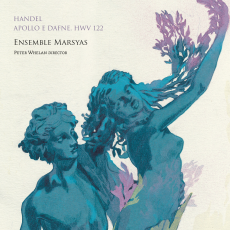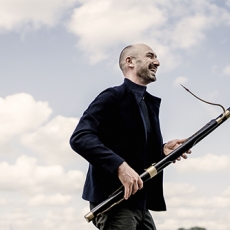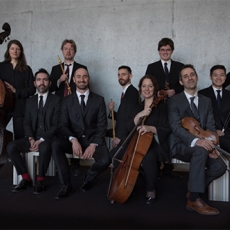Ensemble Marsyas - Handel: Apollo e Dafne - Early Music Review
A sparkling new recording of Handel’s lovely pastoral cantata.
The composition of Apollo e Dafne was probably begun towards the end of Handel’s extended youthful Italian tour, but it was completed (and presumably first performed) in Hanover, after he had become Kapelleister to the Elector, in 1710.
It is a work of considerable dramatic force and subtlety. Dafne’s well-known physical metamorphosis into a laurel tree, just as she is on the point of being ravished by Apollo, is matched by Apollo’s mental transformation, from self-satisfied confidence to humility; the music, as so often with Handel, characterises both with unerring skill. Try, e. g., either of Apollo’s first two arias – both are in major keys, with triadic and wide-ranging melodic lines and much showy coloratura. Then compare these with his (and the cantata’s) final movement – a deeply felt minor-key tribute to the newly-created laurel tree, with a sublimely simple, syllabically set, melody of few notes and narrow compass. Lest we should think Apollo’s change of heart too abrupt, Handel prepares the ground for us with his deeply lyrical ‘Come rosa’ in the midst of the cantata, with its luscious cello obbligato.
Dafne, too, is drawn with much care. Her delicious opening ‘Felicissima quest’alma’ is the essence of pastoral innocence, the upper strings pizzicato, the bass ‘arco’, a wondrous oboe obbligato and a vocal line of seemingly-endless melody. Her energetic next aria, after Apollo declares his passion, is in complete contrast – her repeated ‘sola’ makes her angry rejection of his advances abundantly clear.
Their two duets are also extremely cleverly contrasted; the first is a virtuoso slanging-match, with both voices hurling similar phrases back and forth. The next, however, pits Apollo’s slow, flute-laden lovesick yearnings against Dafne’s rapid rejections, with no shared musical material whatever. The lady is clearly not for turning….
The final chase is vividly portrayed – rapid solo violin figuration is pursued by slower solo bassoon, and all comes to an abrupt stop, just when one’s ear expects a da capo, in tumultuous accompagnato, as Apollo is thwarted.
Mhairi Lawson, as Dafne, and Callum Thorpe, as Apollo, are in complete command of all this glorious music, and bring it to life with enormous dramatic energy, ably partnered by Ensemble Marsyas’s superb playing (particular plaudits to all the splendid ‘obbligatisti’!) Peter Whelan shows equal virtuosity as bassoon soloist and as overall director.
The orchestra (and solo instrumentalists) shine further in the extended overture to Handel’s second London opera, Il Pastor Fido, (which may well have originated in Hanover as a separate orchestral work). I particularly enjoyed Peter Whelan’s bassoon solo in the Largo 5th movement, and Cecelia Bernardini’s sparkling passagework in the finale (Handelians might recognise the latter’s later reincarnation in the Organ Concerto, op. 7 no. 4).
The disc is completed musically by a couple of rarely heard movements for wind band (with energetically improvised percussion from Alan Emslie) which may have been written for Handel’s opera orchestra in the 1720s. David Vickers provides characteristically scholarly and informative booklet notes.
Performance: 5 stars
Recorded sound: 5 stars
Booklet note: 5 stars
Overall presentation: 5 stars


